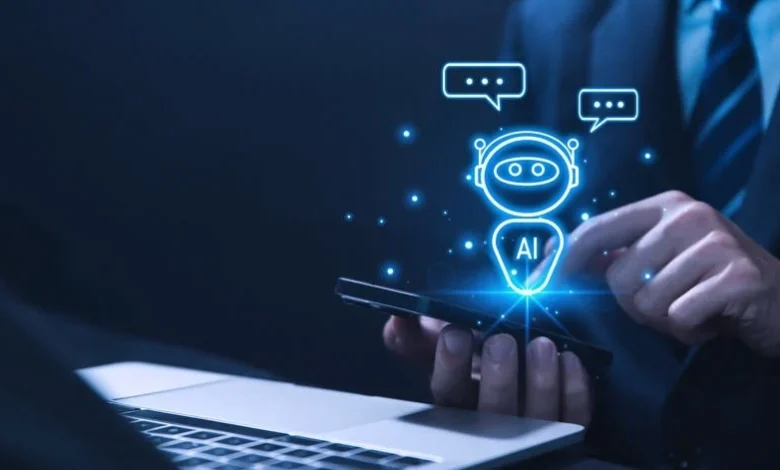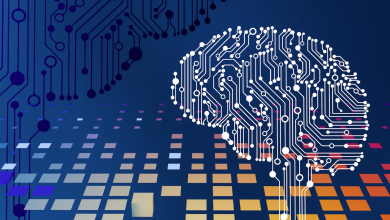
Productivity is something businesses are chasing. The question of improving productivity has always been the key driving force of technological development. Nowadays, you can even imagine having a tireless helper at your side. Do you have any idea what we are talking about? Just think of “someone” who never sleeps, doesn’t need to take breaks, never misses a detail, and is always there when you need them (doesn’t even need coffee breaks, can you imagine?). Well, that’s the advancement of virtual assistant development services and the wide use of AI assistants. You might wonder whether they really are changing how businesses work. That’s what we will discover in this article. Spoiler – they are, but let’s find out how.
Benefits AI Assistants Bring And Differences They Make
There’s no need to wait around. We want to get straight to business and break down the most common benefits brought about by AI assistants.
#1 Working 24/7
AI assistants don’t clock out. They handle customer questions, schedule meetings, or manage to-do lists at any hour. That means customer support doesn’t fall off a cliff at 6 pm, and teams can always stay in motion. This kind of constant availability not only helps with efficiency but also builds stronger trust.
#2 Handling routine tasks
Nobody enjoys doing the repetitive stuff, like sorting emails or entering data. AI steps in and handles those tasks with speed and accuracy. And they don’t even complain. That frees people up to focus on strategy, creativity, or anything where a human touch matters much more.
For example, in finance departments, AI can automatically generate and send invoices, so the team can shift to analysis and planning, more complex and meaningful tasks. The other example is customer support smart chatbots that handle most of the repetitive queries, leaving human agents for the complex tasks that require empathy and creativity.
Beyond chatbots, teams are now deploying AI agents that can deflect routine tickets, escalate edge cases, and integrate with CRM/WFM to uphold SLAs. For an operations-focused playbook, see how to launch and scale AI agent customer support, mapping automation-ready intents, productionizing the knowledge base, and rolling out assist-approve-auto workflows so support volume can grow without headcount. These agents also enable multilingual and voice channels while maintaining guardrails and approvals.
#3 Improved organization and smarter meetings
You can say goodbye to chaotic meeting notes. We have good news – AI assistants can transcribe meetings in real time, highlight key points, and send a tidy summary afterward. Remarkable, right? First of all, nothing gets lost with such an approach, and all the follow-ups become super easy.
Additionally, AI assistants can manage calendars, suggest optimal meeting times (especially when they see back-to-back meetings), and prioritize tasks based on real needs. It is smart and helpful, especially when you need to organize work across departments.
#4 Providing instant knowledge database access
Have you ever wasted time digging for an internal policy or document? In the past, it was a frequent thing. Nowadays, AI assistants act like super-fast librarians. You need some documents, you ask them, and they deliver answers right away. We won’t even exaggerate when we say that it can help employees to significantly cut the time they spend searching for information. As a result, it also boosts creativity and productivity, as some surveys say up to 40%.
#5 Personalization efforts
AI assistants can tailor and adapt how they communicate. And it is related to everything, from its tone, language, or phrasing. Generally speaking, they adapt to each user. You don’t need to be a tech specialist to understand what that means. Basically, it enhances smarter engagement and improves the customer experience. The most important part – such a boost happens without adding more staff (one more way to save costs).
Moreover, apart from personalizing conversations, they can also analyze customer behavior to give personalized suggestions. Imagine having an assistant that can remind people of what they asked about or guide them through the next steps.
#6 Boosting efficiency across the whole workflow
Productivity can increase only when all processes are enhanced. And that’s what AI assistants do. They don’t just zoom into one area. When properly integrated, they can connect all the dots across tools and systems. Moreover, they create a kind of bridge between all workflows so that teams from all departments can work seamlessly. There’s no denying – this kind of integration is a game-changer.
#7 Data-driven empowerment
Unlike old-fashioned chatbots, modern AI assistants aren’t just about following orders. They learn over time and become more and more independent. It’s like a newcomer who doesn’t need their supervisor over time. As we’ve already mentioned, they can analyze behaviors and data. As a result, they can nudge teams toward smarter choices. What are the examples? They may suggest an urgent task first or flag patterns that need closer attention. It’s okay that your employees may not see everything. That’s why you’re implementing AI solutions to fill these gaps.
#8 Real measurable results
Even if it sounds sci-fi or like magic, it’s far from that. All the results you get are measurable. For example, many businesses that have used AI could see their operations sharpen up. In terms of customers, all the calls from them are handled much faster and sharper. Speaking of the financial gains, companies get long-term savings. For example, Microsoft’s AI assistant (the one they integrated in their call centers) saved the company more than $500 million in a year. This is a huge number. Altogether, it has boosted productivity and revenue by almost 9%. Moreover, a lot of developers use AI tools while working, and it helps them deliver the results faster and more accurately.
#9 Humans and AI work better together
For once and for all, AI is not here to replace humans. Let’s look at them as a co-piloting strategy. Many company owners rely on them to improve decision-making processes, analyze risks, and get different insights (regarding marketing, operations, planning, etc.). However, even though they rely on them, the final call is on humans. Still, everyone trusts people’s judgments to make final decisions.
Wrapping Up
Have you already noticed how AI assistants are quietly revolutionizing our workplaces? Even when everyone is busy, customers still feel seen. Even when all managers are at meetings, newcomers get the needed help. You may ask OTAKOYI or any other AI software company, all of them will tell you one thing: when you pair people and AI, let each do what they do best.






